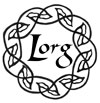Lorg is about continuity. The aim is to share archived materials, histories, and notations of Scottish and Cape Breton dancing so they can live again, and in the process, allow readers to offer their own interpretations of the materials. Bring the footprints of the past into the present by seeking new ways of interpreting them! Keep the act of ‘dancing’ alive!
In 2017, I decided to establish Lorg as my Scottish and Cape Breton Research Hub, and Lorg-Press as a means of spreading my research beyond academic journals and other outputs. I have been collecting and researching dance since the mid-1980s and feel aspects of my archive should be available to a wider audience. As an ethnochoreologist, my interest in dance is, however, holistic in nature. I particularly follow connections into various percussive dance styles, specifically Irish Step and Sean Nós dancing, Quebecois step dancing, English Clog and Step dancing, and to some extent Spanish and Basque dancing. My interests also cover social and figure dancing of all these places. I pursue to place and understand these dance forms in their cultural contexts.
Lorg is Scottish Gaelic for ‘footprint’ and ‘to seek’. I was compelled by the idea that archived dance descriptions need to be published, and dances brought back to life, so the current generation of dancers can access the steps and enjoy the act of dancing them. Thus, I use the motto ‘Bringing the dancing of the past into the present’. Using a mix of the written word, drawings and photographs, and links to suitable video clips available online, Lorg aims to achieve this objective. These dance descriptions and related historical accounts represent the legacies of dancers, teachers, and researchers who have gone before us. It would be a pity if these precious heirlooms were no longer actively used or accessed.
Documents Do Not Dance is the title of Swedish dance ethnologist and colleague Mats Nilsson’s book (2016). In this work, Nilsson compares the act of ‘dancing’ to ‘dances’, examines archival methods, and wrestles with the concepts of tradition and intangible cultural heritage being alive and used. These issues are also intertwined with the core intentions of Lorg.
Online and soft-cover publications by Mats Melin:
- 2015 – One with the Music: Cape Breton Step Dance Tradition and Transmission (Cape Breton University Press).
- 2018 – A Story to Every Dance is an overview of the lore connected to various Scottish solo dances.
- 2019 – Hebridean Step Dancing: the legacy of nineteenth-century dancing master Ewen MacLachlan, examines and describes solo dances in the Hebrides. The book was launched on the 11th July 2019. Online video content is produced by Canadian dancer Sabra MacGillivray.
- 2020 – Dance Legacies of Scotland: The True Glen Orchy Kick, (published by Routledge 31 December 2020-Hardback, paperback and ebook) traces historical descriptions and recollections of percussive step dancing in Scotland. The book includes analyses of step structures and onomatopoeic terminology labelling step motifs. Written in collaboration with Jennifer Schoonover.
- 2022 – Dancie John Reid of Newtyle is a biography and analysis of dance notebooks by this Angus dancing master.
- Forthcoming – The Highland Fling – Footing it through time – a historical collection of Highland Fling steps.
Download purchase links can be found on each individual book page and hardcopy (when available) purchase instructions are provided as well.
Mats Melin, Lorg–press.com

See also www.matsmelin.com for my biography.

